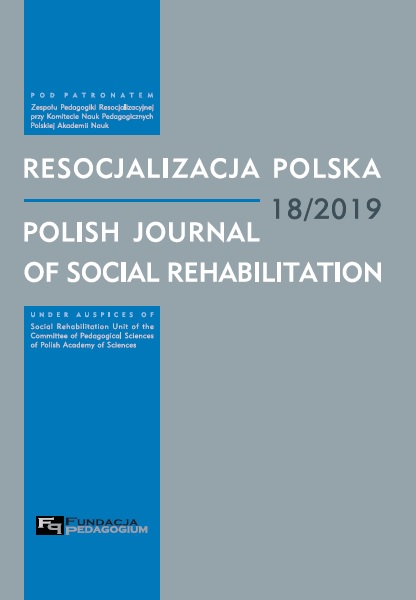Social distance towards the convicted declared by students of several Polish universities
Social distance towards the convicted declared by students of several Polish universities
Author(s): Aleksandra SzymanowskaSubject(s): Social psychology and group interaction, Criminology
Published by: Fundacja Pedagogium
Keywords: Social distance; social roles; criminals; alcoholics; drug addicts; aid to excriminals
Summary/Abstract: The ever-increasing proportion of recidivists serving prison sentences makes it necessary to reflect on why persons released from prisons return there again as a result of committing a crime. Almost all prisons have a variety of programs aimed at helping people released from prison in social re-adaptation. What is their effectiveness, therefore, if persons leaving prison cannot function in society in accordance with the standards of social coexistence and continue to commit crimes. The ex-convicts themselves say that the “stigma” of a criminal makes it harder for them to find a job, a place to live and to enter the environment of people who have never been convicted, because people do not trust them and they will always be the “first” suspects in the event of a crime.The following paper presents the results of the research on the social distance towards the convicts of students who, after graduation, will perhaps provide assistance to such persons. The survey conducted in January 2019 consisted of 381 students of the University of Economics and Human Sciences in Warsaw (AEH), the Cardinal Stefan Wyszyński University in Warsaw (UKSW) and the University of Public and Individual Security “APEIRON” in Cracow (ABIiP). The method used was a modified Bogardus scale. As has been shown by research, persons convicted of family abuse, rape and sexual abuse of a minor have faced a total lack of acceptance in almost all social roles. A large social distance was also declared by the students surveyed towards people convicted of crimes against life and health and against property. The respondents also showed a considerable distance towards people who systematically abuse alcohol and get drunk, and systematically use drugs.
Journal: Resocjalizacja Polska
- Issue Year: 18/2019
- Issue No: 2
- Page Range: 239-251
- Page Count: 13
- Language: English

